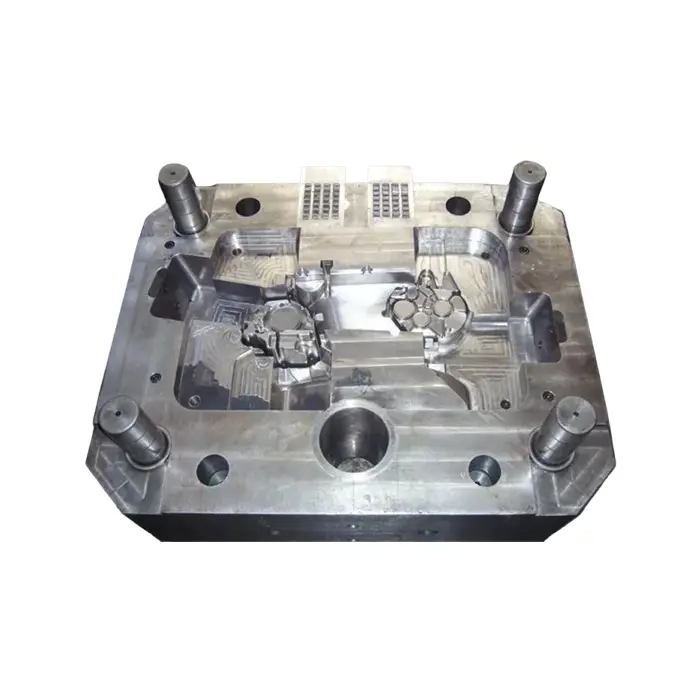Why Choose Plastic Mold for Precision Manufacturing?
2025-09-11
Plastic mold technology has become the backbone of modern manufacturing, influencing industries ranging from automotive to healthcare and consumer electronics. But why choose plastic mold over other production methods? The answer lies in its efficiency, precision, and scalability.
Plastic molding is the process of shaping plastic material into desired forms by using a rigid mold. This technology allows manufacturers to mass-produce complex components with consistent quality and minimal waste. The mold itself acts as a template, ensuring every piece produced matches exact design specifications.
Unlike traditional fabrication methods such as machining or hand-carving, plastic mold techniques can replicate millions of identical components in a fraction of the time. This makes it not only cost-effective but also highly adaptable to evolving design trends.
The importance of plastic molds goes beyond efficiency. Modern molds are engineered to withstand high pressure, extreme temperatures, and rigorous production cycles. They allow manufacturers to introduce intricate designs, delicate textures, and precise geometries that would be nearly impossible with conventional manufacturing techniques.
In addition, plastic mold processes support eco-friendly practices. With improved material flow control and recycling options, companies can reduce excess material use and minimize waste. This combination of sustainability, scalability, and precision makes plastic molds indispensable in today’s global manufacturing ecosystem.
How Plastic Mold Technology Shapes Different Industries
To fully understand how plastic mold works in practice, it helps to explore its applications across industries:
-
Automotive Industry: Plastic molds produce dashboards, bumpers, door panels, and intricate engine components. The advantage lies in lightweight design, which improves fuel efficiency without compromising durability.
-
Medical Sector: Precision is critical in healthcare equipment, and plastic molds deliver syringes, IV connectors, diagnostic casings, and prosthetics with unmatched consistency.
-
Consumer Electronics: From smartphone housings to remote controls and laptop parts, plastic mold ensures sleek design, durability, and high-volume output.
-
Packaging Industry: Bottles, caps, and food containers are commonly created with plastic molds, offering hygiene, uniformity, and cost-effectiveness.
-
Construction Field: Electrical fittings, piping systems, and insulation materials benefit from high-strength plastic mold solutions.
Each of these industries requires tailored molds that can withstand the physical demands of production while maintaining dimensional accuracy.
Plastic mold technology also integrates with innovations such as 3D printing and CAD/CAM software, making prototyping faster and design revisions seamless. This digital transformation further enhances efficiency and accuracy, providing businesses with a competitive advantage.
Technical Parameters and Product Advantages
When evaluating what defines a high-quality plastic mold, technical specifications matter. Customers often assess molds based on material, hardness, durability, and precision. Below is a professional parameter table summarizing the critical features of plastic molds:
| Parameter | Specification |
|---|---|
| Mold Material | P20, H13, S136, NAK80, or stainless steel |
| Hardness | 48–52 HRC (depending on application) |
| Surface Finish | Mirror polish, EDM finish, texture options |
| Tolerance Accuracy | ±0.01 mm |
| Cavity Numbers | Single cavity or multi-cavity (up to 64) |
| Cooling System | Optimized water channels for efficient cycles |
| Mold Life Span | 300,000 to 1,000,000 shots depending on steel |
| Injection Compatibility | Thermoplastics, ABS, PP, PC, Nylon, PET, etc. |
| Production Cycle Time | 10–60 seconds (depending on part complexity) |
| Applications | Automotive, medical, packaging, electronics |
These parameters ensure that each mold delivers maximum performance, high output rates, and cost efficiency.
Key Advantages of Choosing Plastic Mold:
-
Durability – Engineered steel molds last through hundreds of thousands of cycles.
-
High Precision – Supports micro-level accuracy, essential for medical and electronic components.
-
Flexibility – Capable of producing simple or complex geometries with different surface finishes.
-
Scalability – Efficiently supports mass production with consistent quality.
-
Cost-Effectiveness – Reduces per-unit production costs when compared with alternative methods.
-
Eco-Friendly – Supports recycled plastics and reduces material waste.
By aligning technical excellence with cost advantages, plastic molds have earned their reputation as the most practical solution for manufacturers worldwide.
The decision to adopt plastic mold solutions goes beyond technology; it is also about choosing the right supplier who understands both the technical and business needs. A reliable supplier ensures shorter lead times, high mold life, and responsive after-sales service.
Factors to Consider When Choosing a Plastic Mold Supplier:
-
Experience: Proven track record in delivering molds for your specific industry.
-
Design Expertise: Capability to provide CAD design, simulation, and prototyping.
-
Quality Standards: Compliance with ISO, CE, or other international certifications.
-
Customization: Ability to adjust cavity numbers, mold size, and design complexity.
-
After-Sales Support: Maintenance, polishing, or modification services.
-
Competitive Pricing: Transparent cost breakdown without compromising quality.
Choosing the right partner ensures not just reliable molds, but also a long-term collaboration that supports business growth.
Frequently Asked Questions About Plastic Mold
Q1: What materials are commonly used in plastic mold manufacturing?
A1: The most widely used materials include P20 steel for general molds, H13 for high-temperature resistance, S136 stainless steel for corrosion resistance, and NAK80 for high polish applications. The selection depends on the product’s function, expected mold life, and production volume.
Q2: How long does a plastic mold typically last?
A2: Mold life varies based on material and maintenance. A standard mold can last between 300,000 and 1,000,000 shots. High-quality steel molds, with proper cooling and maintenance, often exceed this lifespan, delivering consistent quality throughout their cycle.
The Future of Plastic Mold in Manufacturing
Plastic mold technology continues to shape the future of global manufacturing, offering unmatched precision, scalability, and cost-efficiency. From automotive safety parts to delicate medical equipment, the role of plastic molds is expanding with every new innovation.
For businesses aiming to secure competitive advantages in production, investing in high-quality molds is no longer optional—it is a necessity.
At Aicheng, we specialize in delivering advanced plastic mold solutions tailored to the unique needs of global industries. With professional expertise, cutting-edge facilities, and strict quality standards, we help companies optimize their production lines with reliable molds that guarantee performance and durability.
If you are ready to take your manufacturing process to the next level, contact us today to discuss how Aicheng can design and deliver the perfect mold for your business needs.



